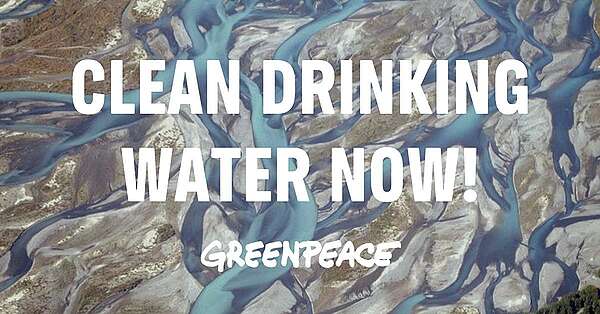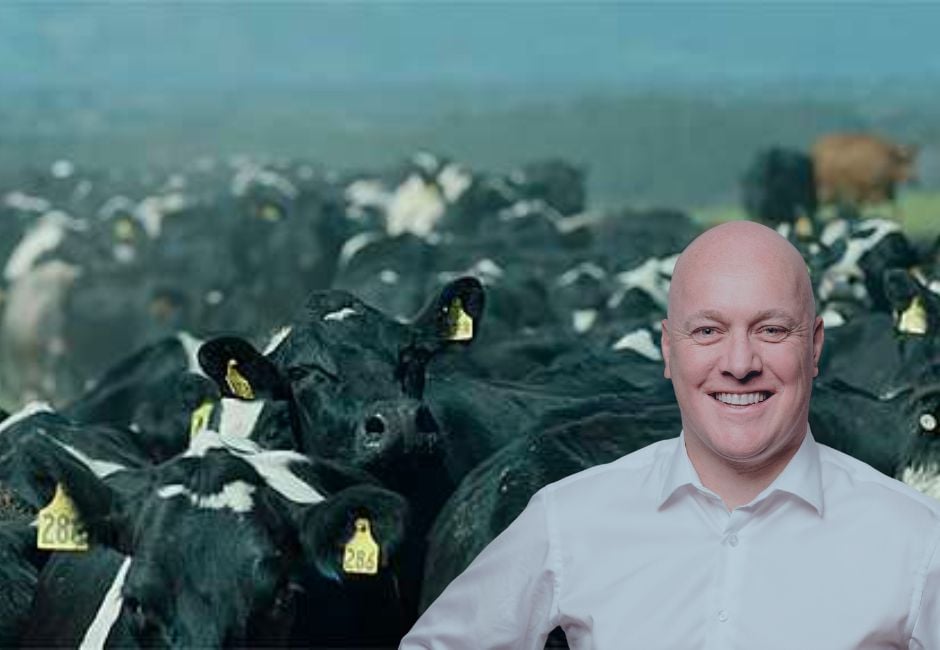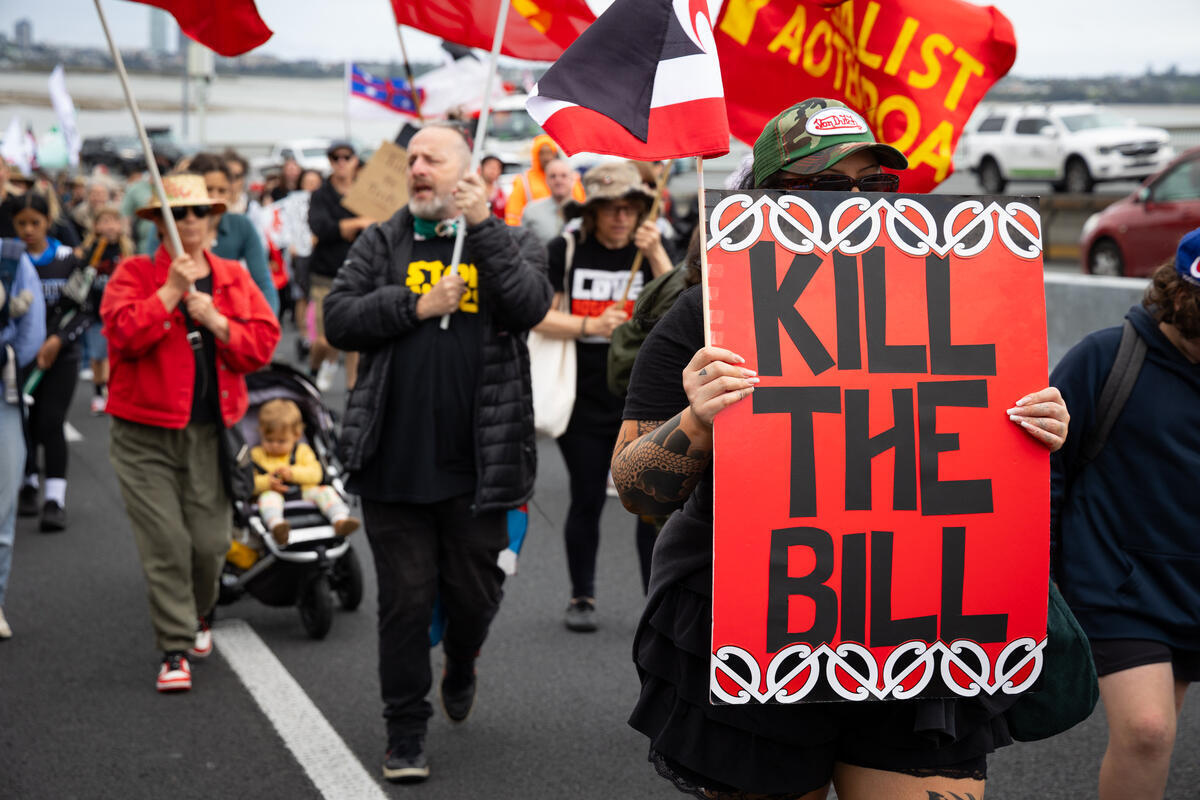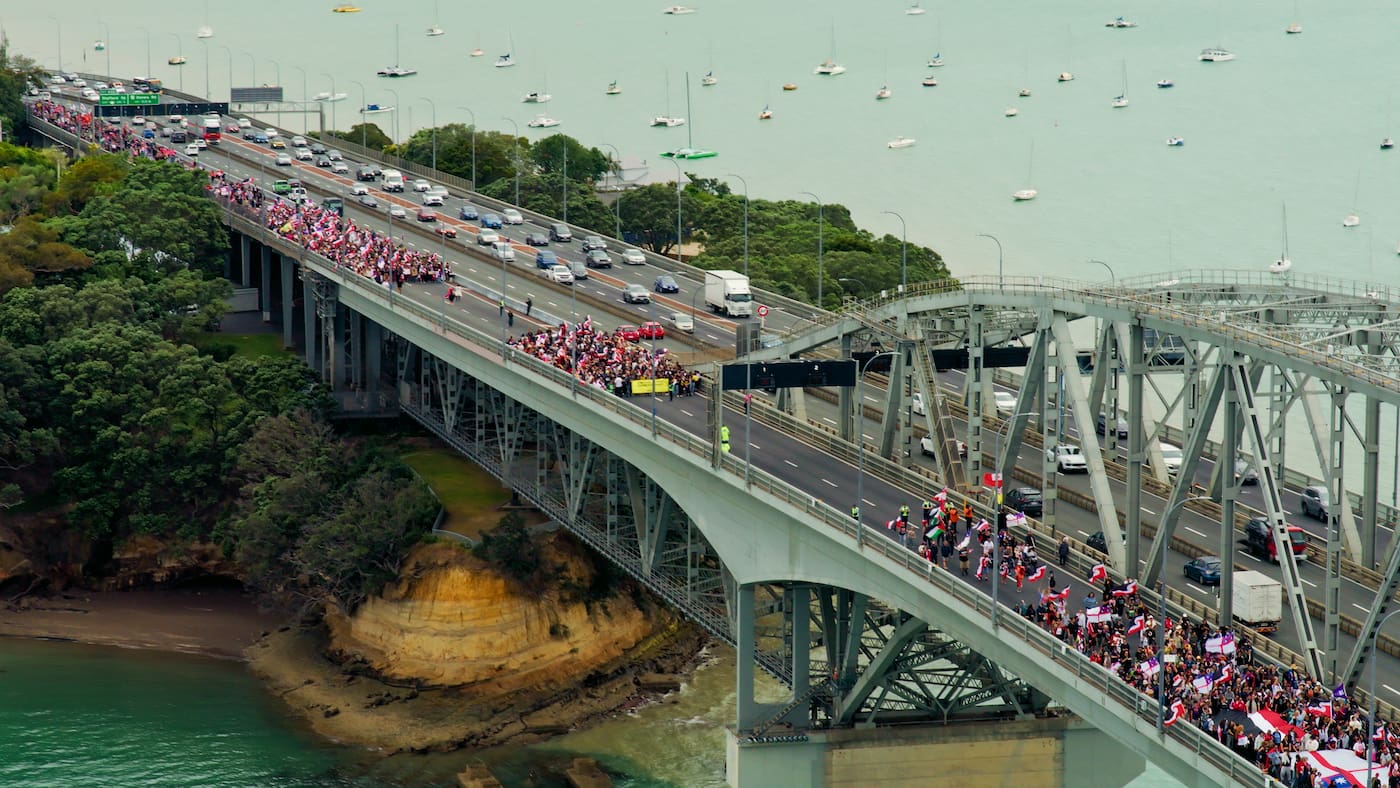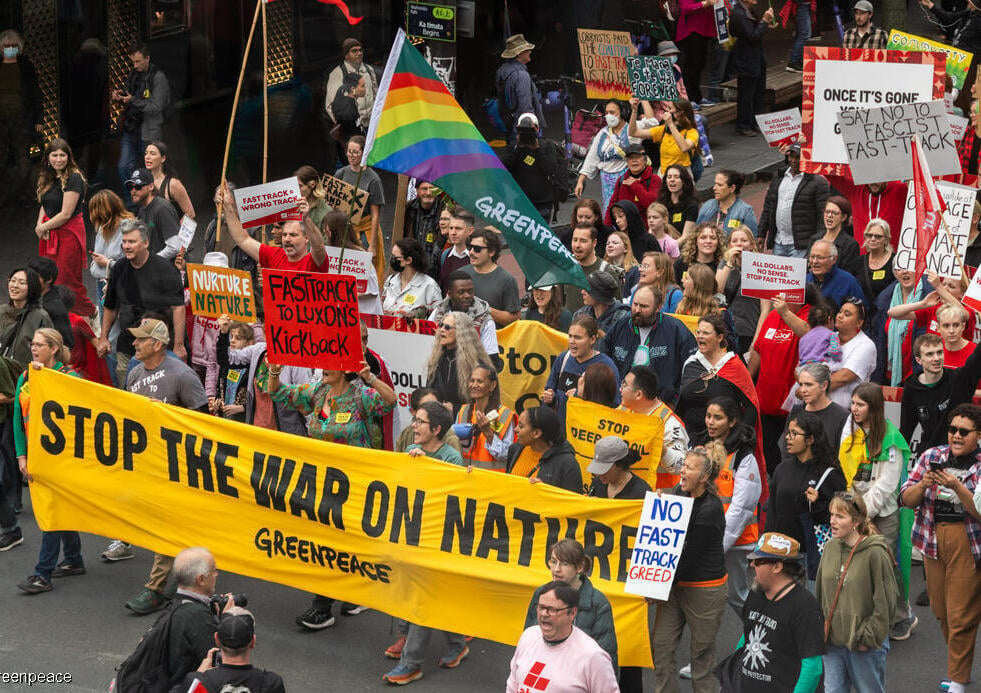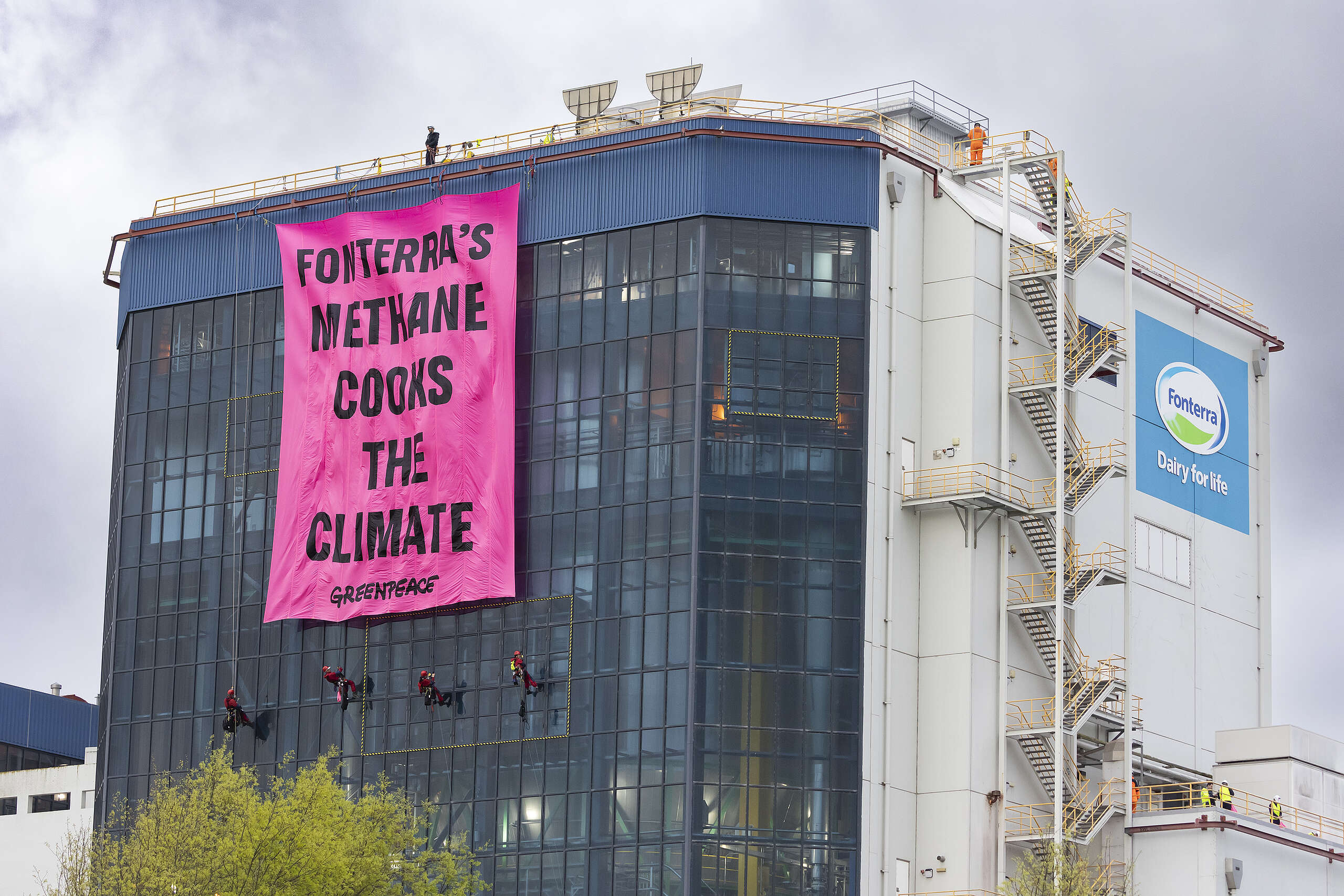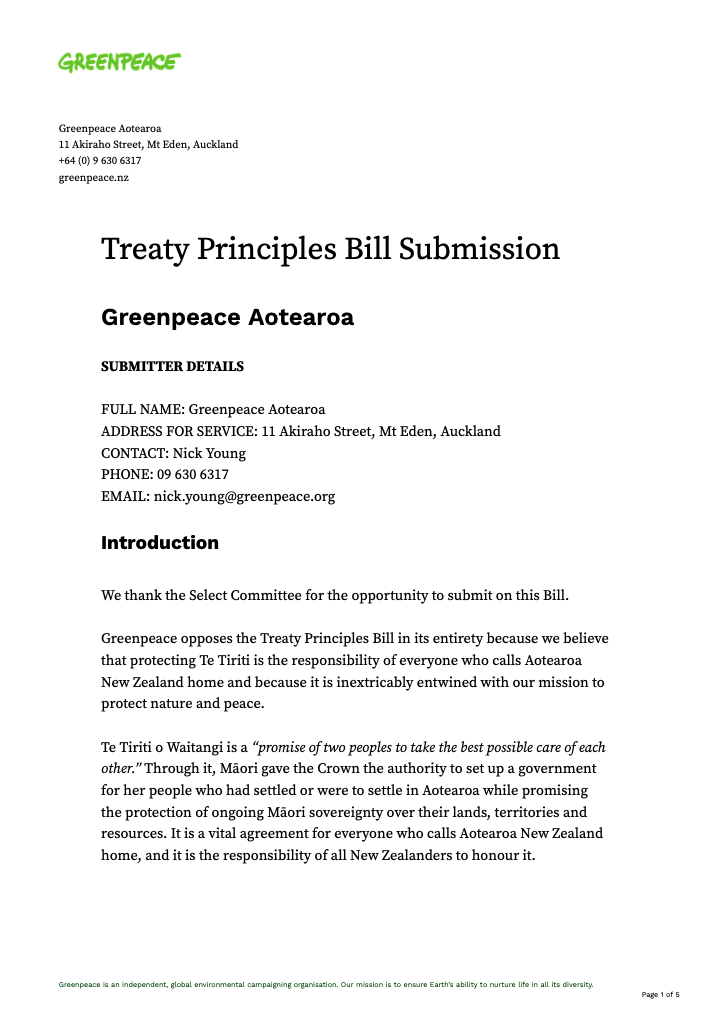All articles
-
Milking it: how the intensive dairy industry rewrote freshwater rules in their favour
Shocking new evidence exposes how the intensive dairy industry lobbied MPs to rewrite freshwater rules in their favour.
-
Luxon’s bonfire of natural capital leaves New Zealand poorer
Ahead of Luxon's state of the nation speech, Greenpeace says Govt plan to burn natural capital in bid for short-term GDP growth will leave us poorer.
-
Trump exit from Paris Agreement means NZ must rally with world to save climate
In light of Donald Trump’s plan to pull the United States out of the Paris Agreement, Greenpeace calls on Luxon to commit to strong new climate target.
-
As the Los Angeles fires burn, the world passed 1.5 degrees of warming. Here’s why there’s still hope to fight climate change.
The Los Angeles fires are a devastating reminder of the dangers of climate change, but it's not too late. Here’s why there’s still hope to fight climate change.
-
My new dark red climate stripe for 2024 shows it’s the hottest year yet
The data is in. 2024 was the warmest year on record, and probably in the whole of human history – about 1.6°C warmer than the period before widespread industralisation. More…
-
The Treaty Principles Bill explained: What it is and why it’s bad
Here's a guide to what the Treaty Principles Bill is, why we should all oppose it and how you can make a quick or detailed submission.
-
Te Tiriti and the environment: If you care about nature, I call on you to care about the Treaty
Upholding Te Tiriti is vital in our efforts to care for the environment. Those of us who care about nature will likely have experienced feeling our world broadened by a Māori worldview.0
-
Greenpeace says Fast Track Law will continue to be resisted
Greenpeace is warning that the Fast Track Approvals bill will continue to be resisted when it becomes law after passing its third reading in parliament yesterday.
-
GWP*: the tool that the meat and dairy industry is using to manipulate math on climate action – and how we can stop them
GWP*, no additional warming, and other clever accounting tricks are used by the dairy industry to get out of climate action - but what do they mean?
-
Greenpeace Submission on the Treaty Principles Bill
Greenpeace opposes the Treaty Principles Bill in its entirety because we believe that protecting Te Tiriti is the responsibility of everyone who calls Aotearoa New Zealand home and because it…

